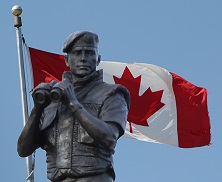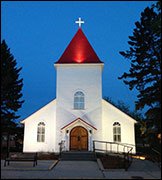True and Fascinating Canadian History
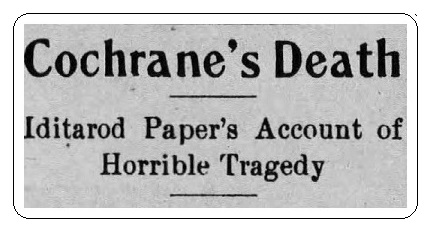
Vet of the Month: December, 2020
Reg.#22, Constable David James Cochrane
RCMP Vets. Ottawa, ON

I want to express my sincere thanks up-front to retired RCMP Manitoba Veteran Neil Christoffersen. This story is only possible because of Neil's persistent research -- he uncovered several historical documents online which partly tell about the life, and the sad and untimely death of Sub Constable David James Cochrane.
Of all places, David James Cochrane was born in 1849 in Richibucto, New Brunswick -- a small fishing village situated on the Richibucto River on the east coast of New Brunswick. In his teenage years, David Cochrane may have been a fisher, but he grew restless. He probably read in the newspapers that the North West Mounted Police (NWMP) were hiring recruits -- hiring began after the formal proclamation of the NWMP on September 25th, 1873, and immediately nine Commissioned Officers were selected to organize the Force. The advent of the NWMP brought refreshing excitement to Canadians, and especially to applicants such as David Cochrane all of whom were young men and all looking for a new adventure.
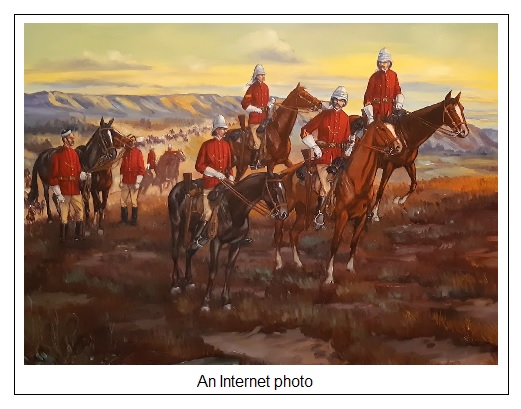
Two Officers, Inspector Charles Young, and Inspector Ephrem Brisebois were dispatched to the Maritimes as Recruiting Officers. The two Officers might well have suggested to fresh applicants that the NWMP was a solid and once in a lifetime adventure -- but what the Recruiting Officers failed to say was that the March West would be the most strenuous and dangerous horse ride across the prairies that anyone could ever imagine. It seems that the March West was widely sold as an all Canadian escapade that few applicants for the NWMP would ever want to miss.
There was a want for thrills, and one Officer, Sub Inspector C. Denny did identify the deep attraction which young men had for the early NWMP. In his now famous book entitled: The Law Marches West, Inspector and author Cecil Denny said, "Looking back at the rate of pay and the work they performed, it seemed poor remuneration, but the lore of the unknown, and the prospect of adventure brought thousands to apply for enlistment." (Denny: 5). As it turned out, after learning more about the anticipated dangers of the March West, a hundred of so recruits quit the NWMP well before the adventure to the prairies and the west had even begun.
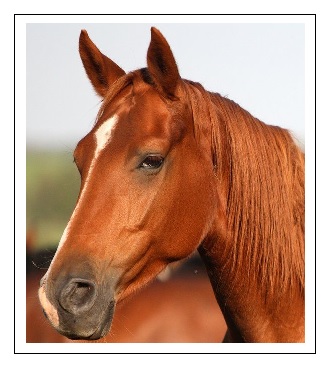
Nevertheless, fear of the unknown had no effect on David Cochrane. He celebrated his engagement into the NWMP on November 3, 1873, and then he left his family and his familiar surroundings in New Brunswick and made his way west either to Ottawa or Toronto where other recruits were assembled. He was among the very first men to join the fledging Force. He was assigned Reg.#22. David James Cochrane was 24 years of age.
After his formal engagement in New Brunswick, very little is known about Sub Constable Cochrane. Briefly, it is known that he was assigned to 'B' Division -- it was one of the three mounted divisions ('A', 'B' and C') which made its way from Toronto to Collingwood and then across Georgian Bay by steamer to the Lakehead (Port Arthur-Fort William). Afterwards, the men followed the Dawson Route to Winnipeg and to Lower Fort Garry, a arduous trip which took about 22 days.
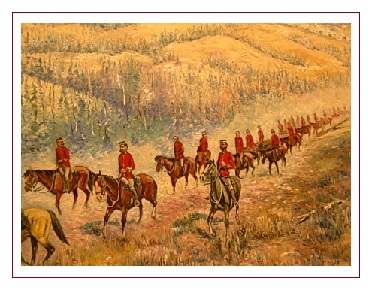
After their initial basic recruit training at Fort Garry, about 320 men who comprised the entire NWMP and including Sub Constable Cochrane left Fort Garry for the March West. It was July 7, 1874.
Much has been written about the arduous over land trip across the prairies which included several perils that no one had anticipated; the lack of food and nourishment, the heavy work involved with loading and unloading food and equipment, hot and cold weather, sickness and hunger among the men, ill fitting clothes and boots, lame horses and frightening lightning storms which affected both the men as well as the horses.
Sub Constable Cochrane withstood all these hazards, but no one seemed to honestly notice or care how the men's overall health was affected by the rigours of the March West, or the dangerous life style with the men experienced throughout the early years of the NWMP. In their spare time, many men turned to alcohol either to relieve their pain or make them forget inner demons, torments or trauma which caused nightmares.

Sub Constable Cochrane was only one man among hundreds and hundreds of other NWMP who turned to drink. In his detailed book about the early NWMP entitled, "The North West Mounted Police: 1873 to 1885", Canadian author Jack F. Dunn wrote about the relationship to and the effects of alcohol on the careers of men in the NWMP. Jack Dunn said, "A number of former Mounted Police ran afoul with the law. Alcohol and gambling offences were the foremost: Fred Pace, James Murray, Cecil Denny, James Claustre, Ephrem Briesbois and D. J. Cochrane were convicted to alcohol offences." (Dunn: 450). In a few cases, a serious abuse of alcohol lead some men to their death, and no doubt David Cochrane will sadly be counted among these special unfortunates.
After the March West of 1874, Sub Constable Cochrane continued to serve in the NWMP for a total of six years. He left the Force in 1879, and not a lot is known of him until some years later. In David Cochrane's obituary which RCMP Veteran Neil Christoffersen found online, it was reported that David Cochrane was once selected as the Chief of Police in Atlin, BC. Another report from his obituary said that he was involved in the North West Rebellion in 1885.
Around 1892, David Cochrane was living in Fort Macleod, AB. His occupation was listed as a farmer. In the same year, he returned to his birthplace in Richibucto, NB, and there he married Margaret Rowbotham of Dorchester, NB on January 14th, 1892. The couple returned to Fort Macleod where their two daughters were born.
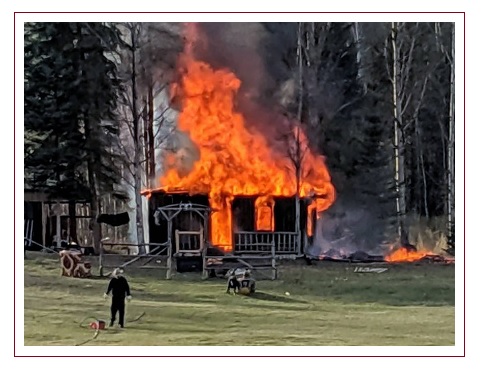
At some point while the family lived in Fort Macleod, David Cochrane left his family. He made his way north to Alaska and he turned to prospecting and in search of gold. He lived in a small cabin on the river in Iditarod, Alaska and it was here in Alaska that David Cochrane met his death.
According to his obituary, David Cochrane had spent the day drinking. He was noticed in an advanced state of intoxication on the street by Mayor John D. Barnes. Mayor Barnes persuaded Cochrane to go home. Later, Mayor Barnes asked Chief of Police Kennedy to visit Cochrane's cabin on the river to ensure that Cochrane was safe and in bed.
The first time that Kennedy visited Cochrane he noticed that Cochrane was safe and he also noticed that two lamps in his cabin were also alight. An hour or two later, Chief Kennedy decided to visit him again but he found Cochrane's cabin ablaze with fire. Kennedy reported that the fire as too advanced and there was no hope to save Cochrane. It was a long way from Richibucto, NB. David Cochrane died alone. He was 62. At the time of his death, his wife was living in Providence, RI, USA. One daughter was living in Massachusetts, and another daughter was living in Montreal. The Cochrane family instructed that David Cochrane was to be buried in Iditarod.
The author of David Cochrane's obituary which appeared in the Whitehorse Weekly Star on March 15th, 1912 spoke very highly of David Cochrane's character and his good reputation. The obituary said Mr. Cochrane, "Was a man of good address and was reputed to be well connected. He was a member of the Order of Foresters." He left an estate estimated to be small. Today, David Cochrane is remembered as a good and faithful servant of Canadians and of the Force.
Reg.#22, David James Cochrane was buried in the Iditarod Pioneer Cemetery. Iditarod, Alaska. The exact location of his grave has not yet been found. The wooden marker which might have once identified his grave is long gone. R.I. P.
Reporting from Fort Healy,
J. J. Healy
December 23, 2020
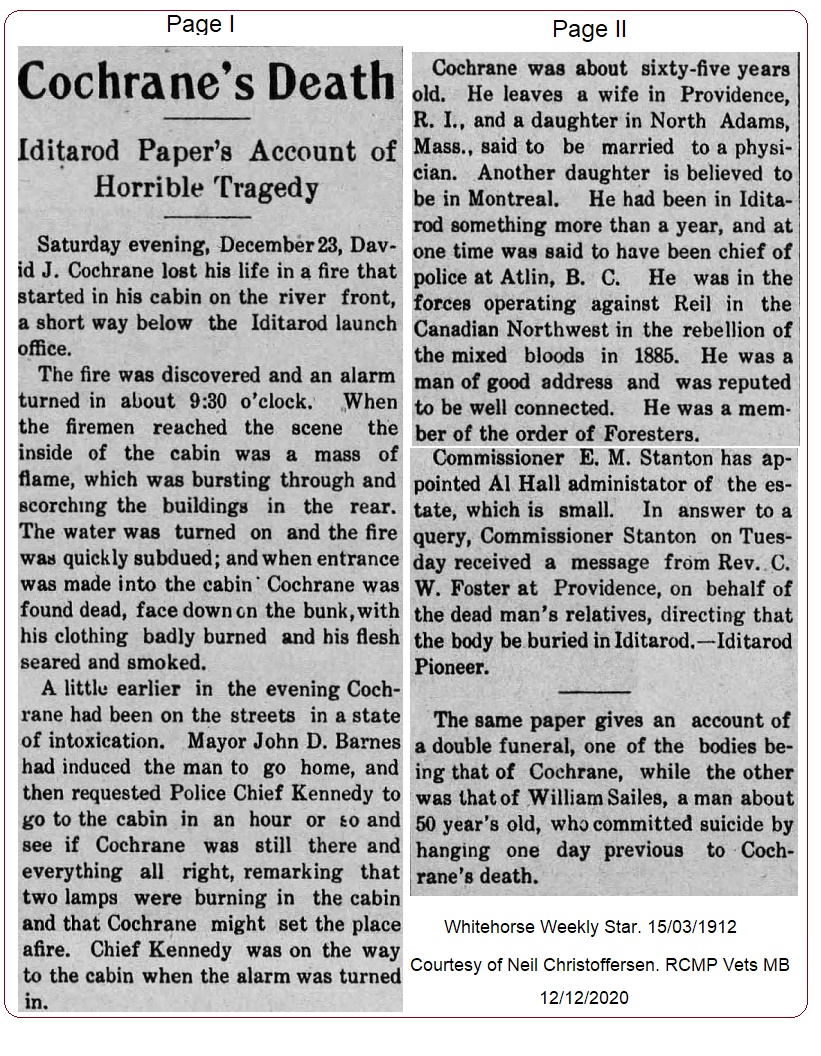
Denny, Cecil. (1939). The Law Marches West. Toronto: Dent.
Dunn, Jack F. (2017). The North West Mounted Police: 1873 to 1885. Jack F. Dunn. Calgary, AB.
The Whitehorse Weekly Star. Obituary for D. J. Cochrane. March 15th, 1912

